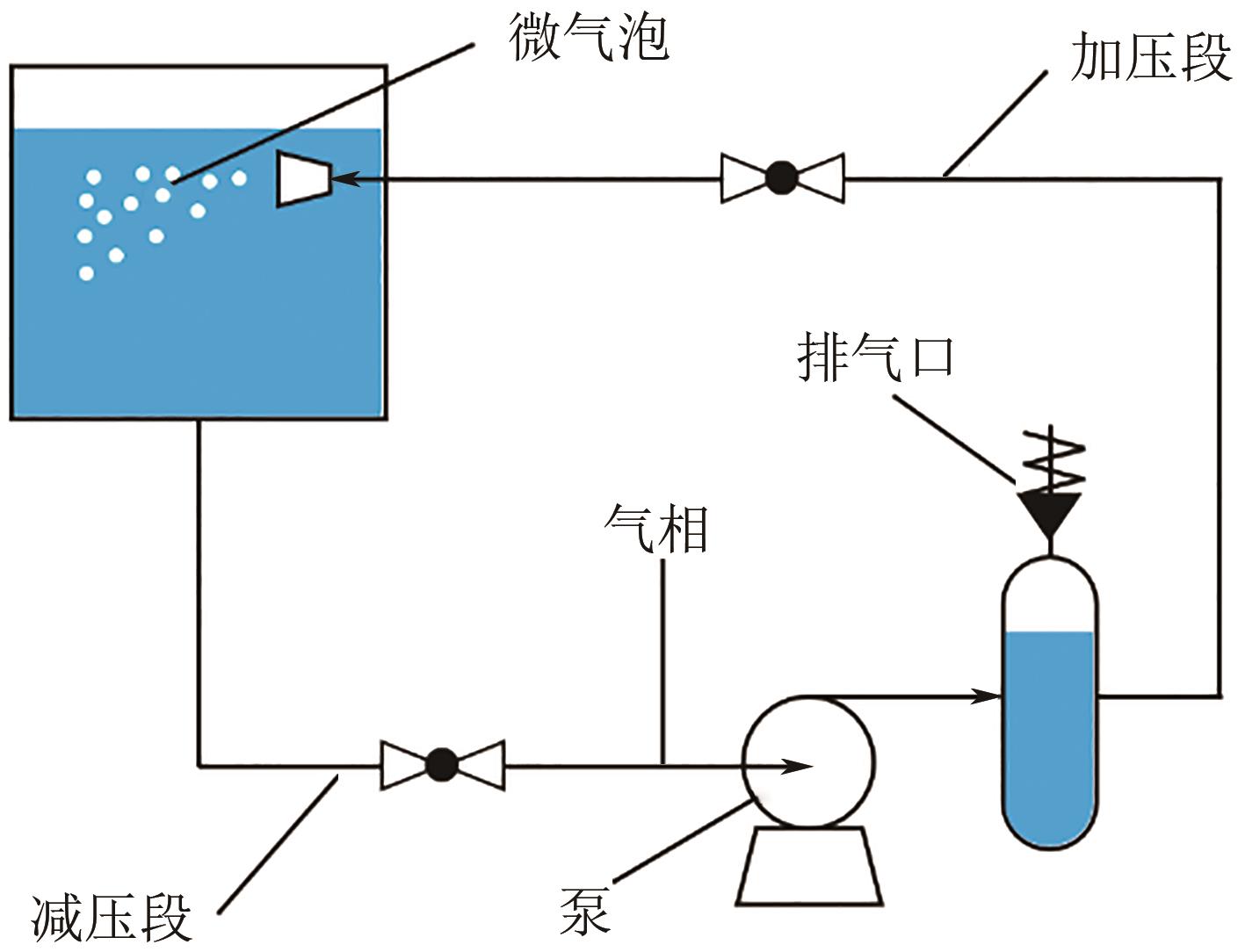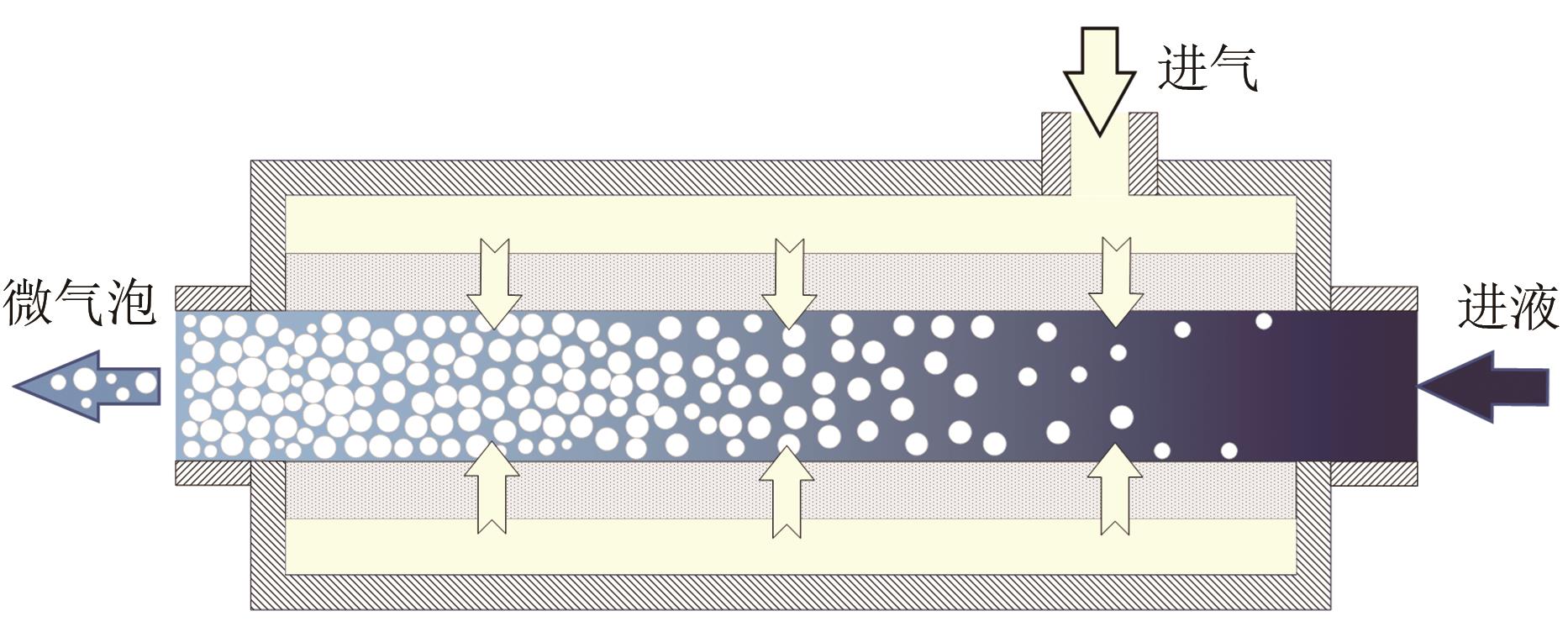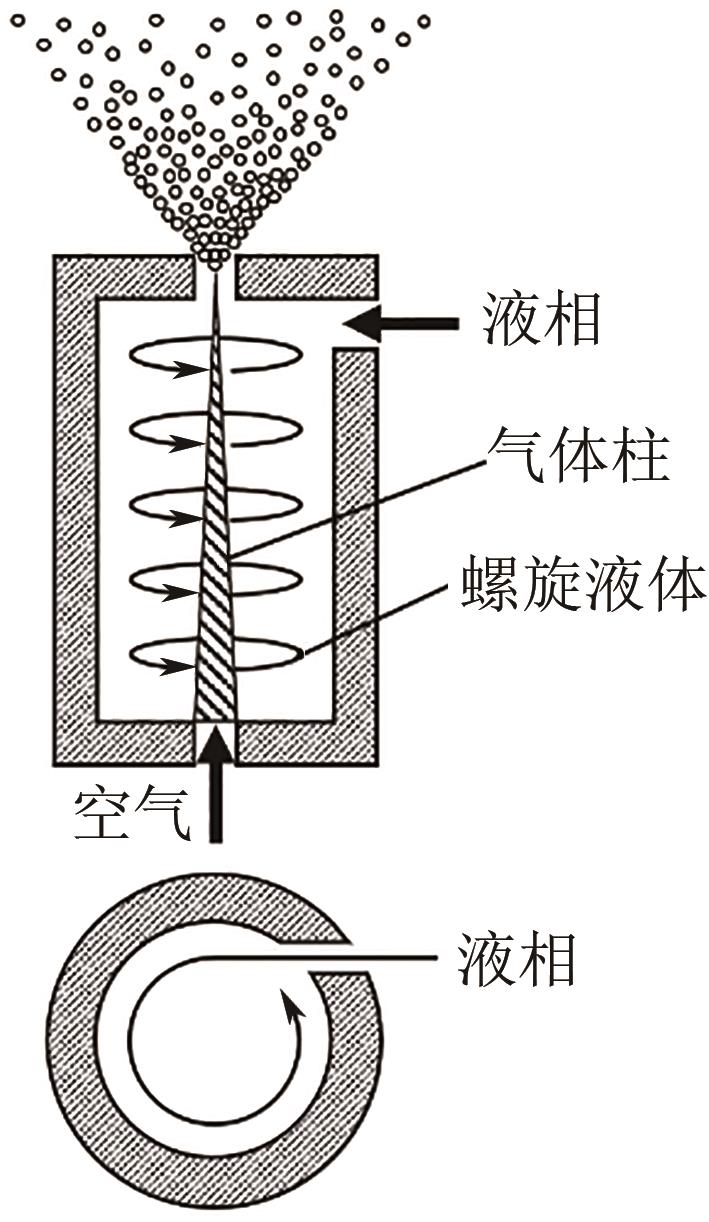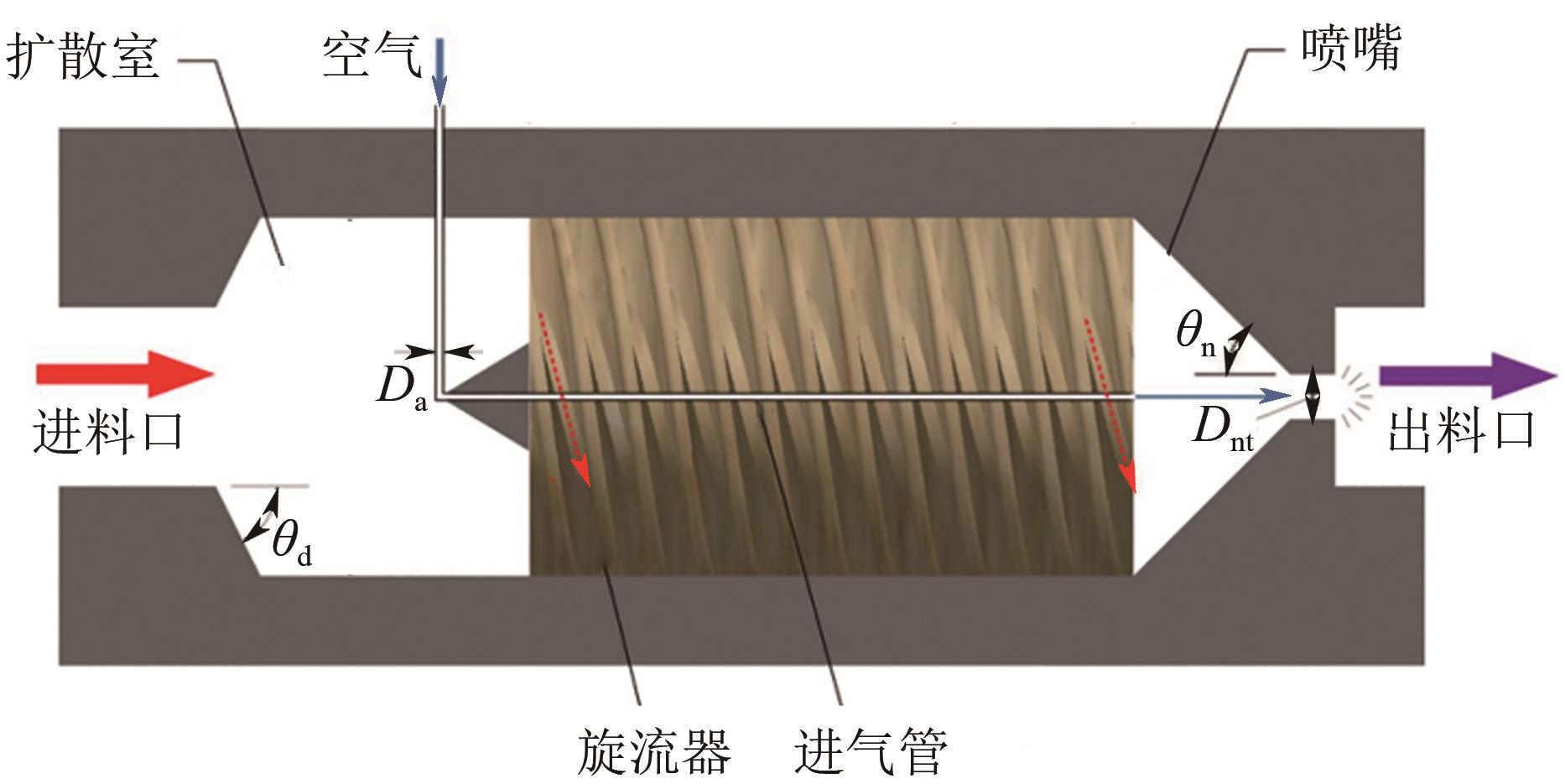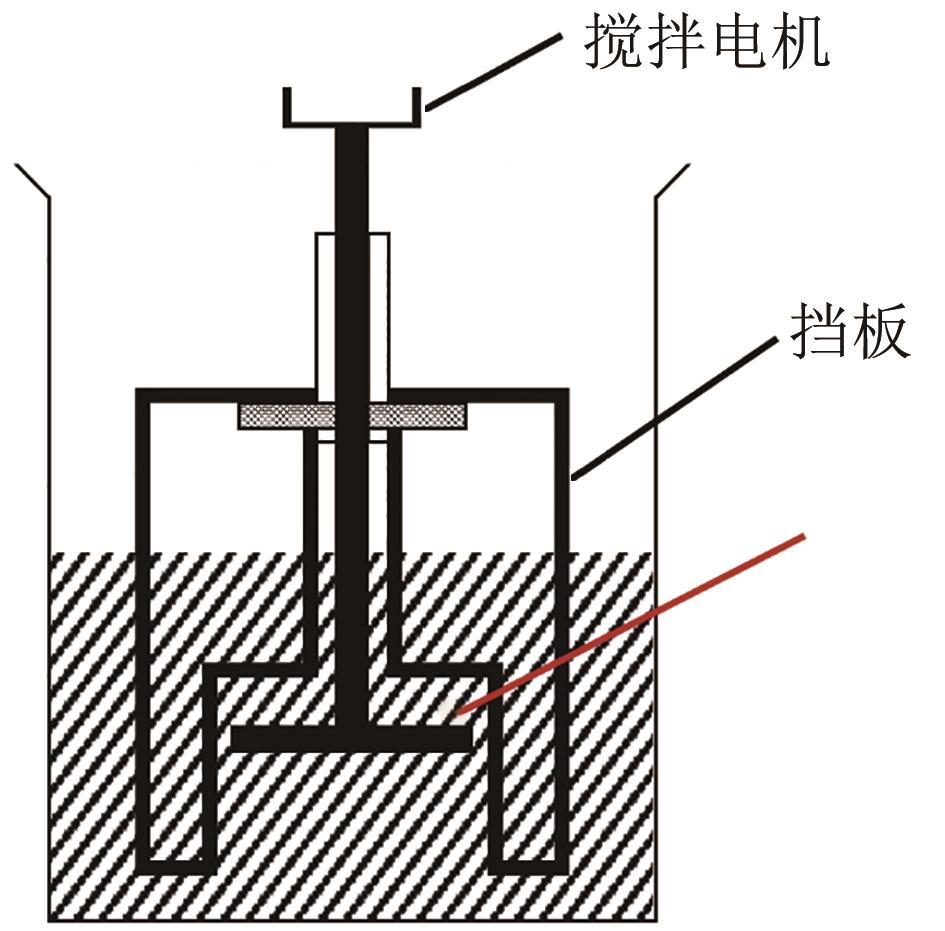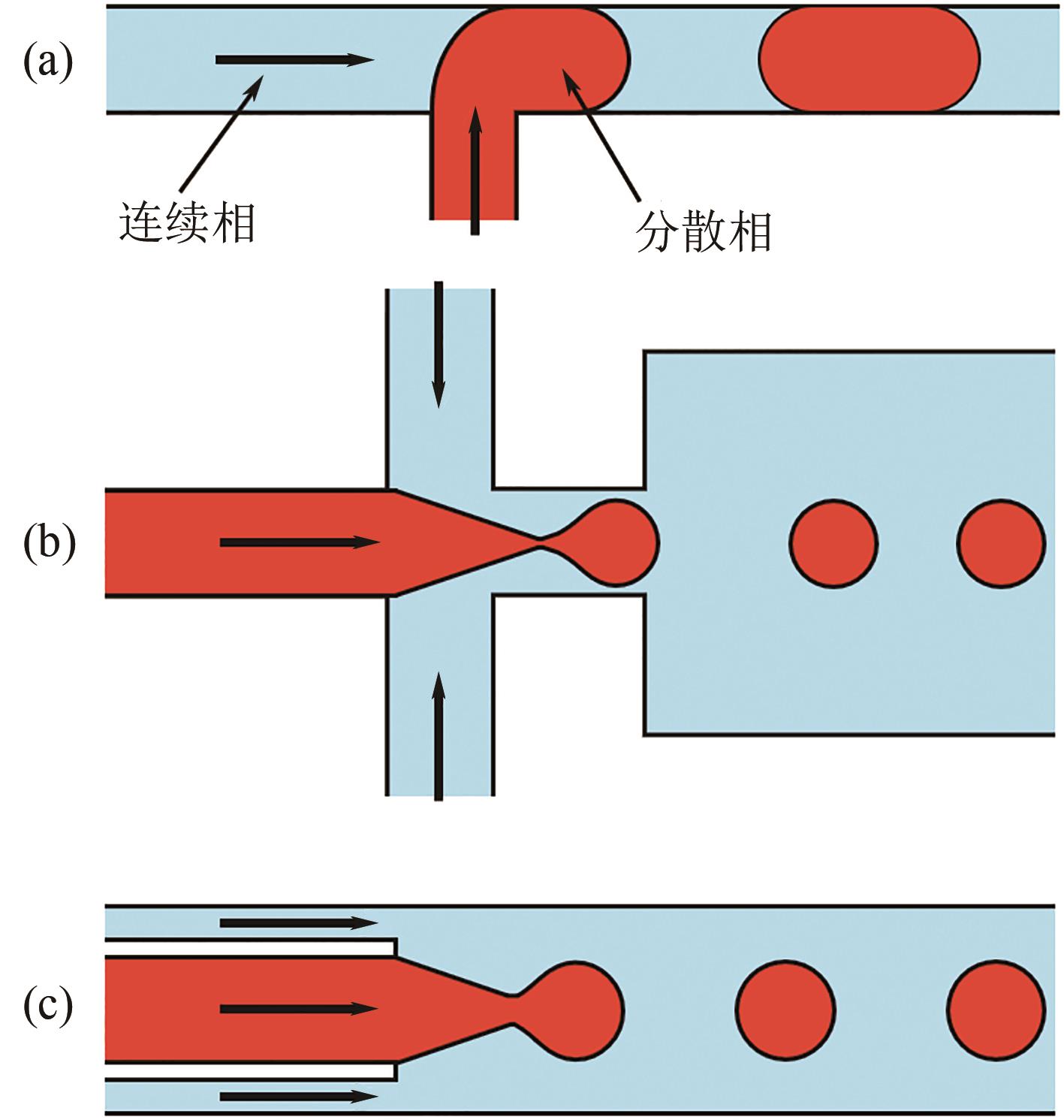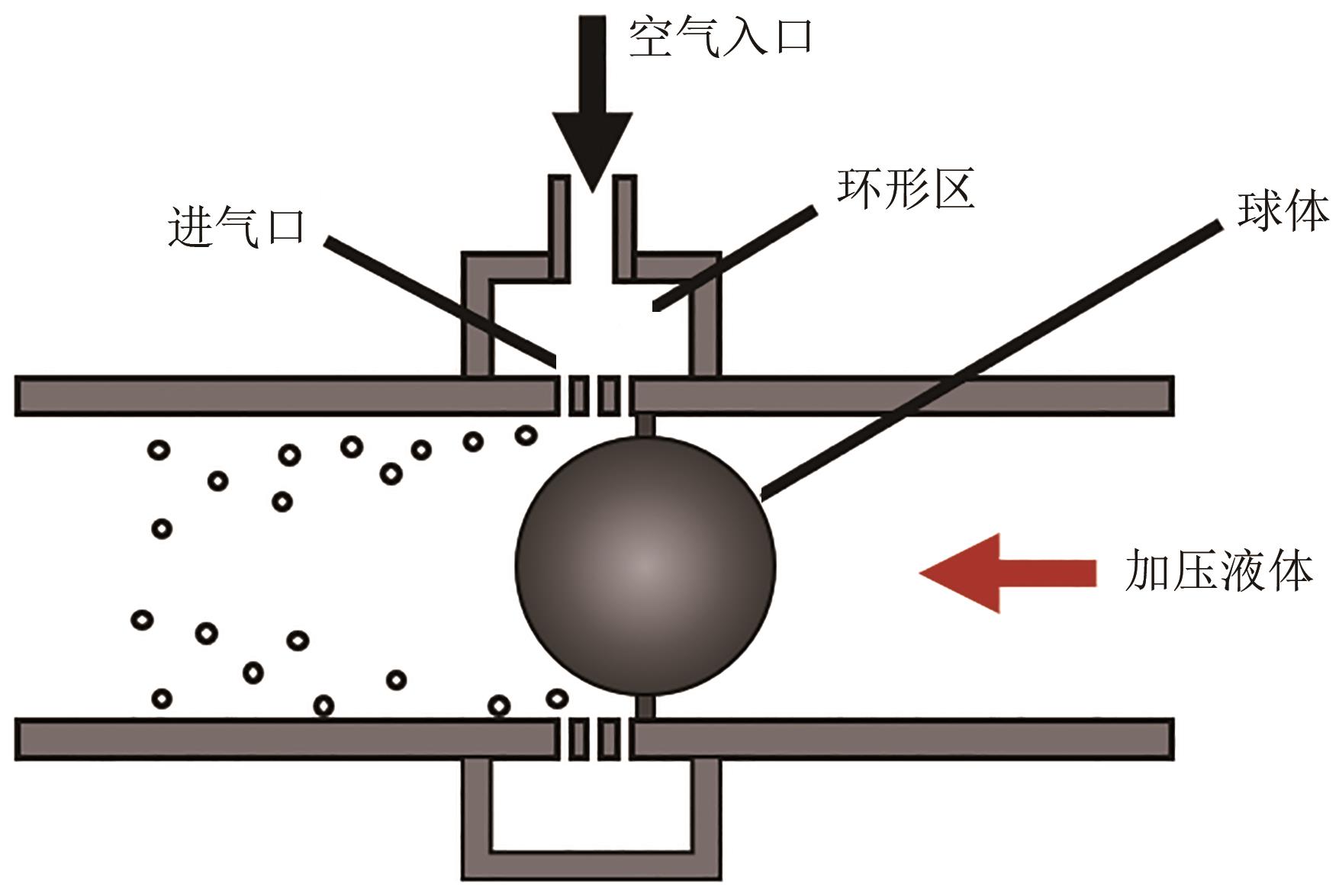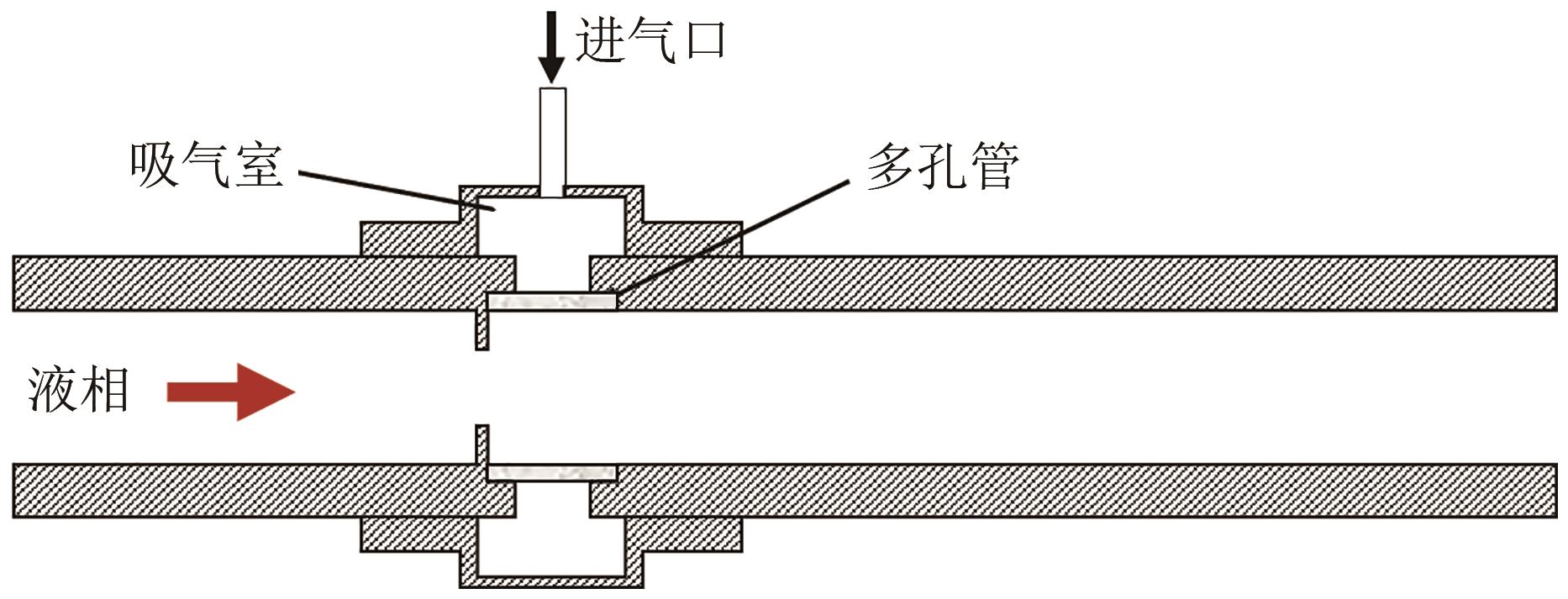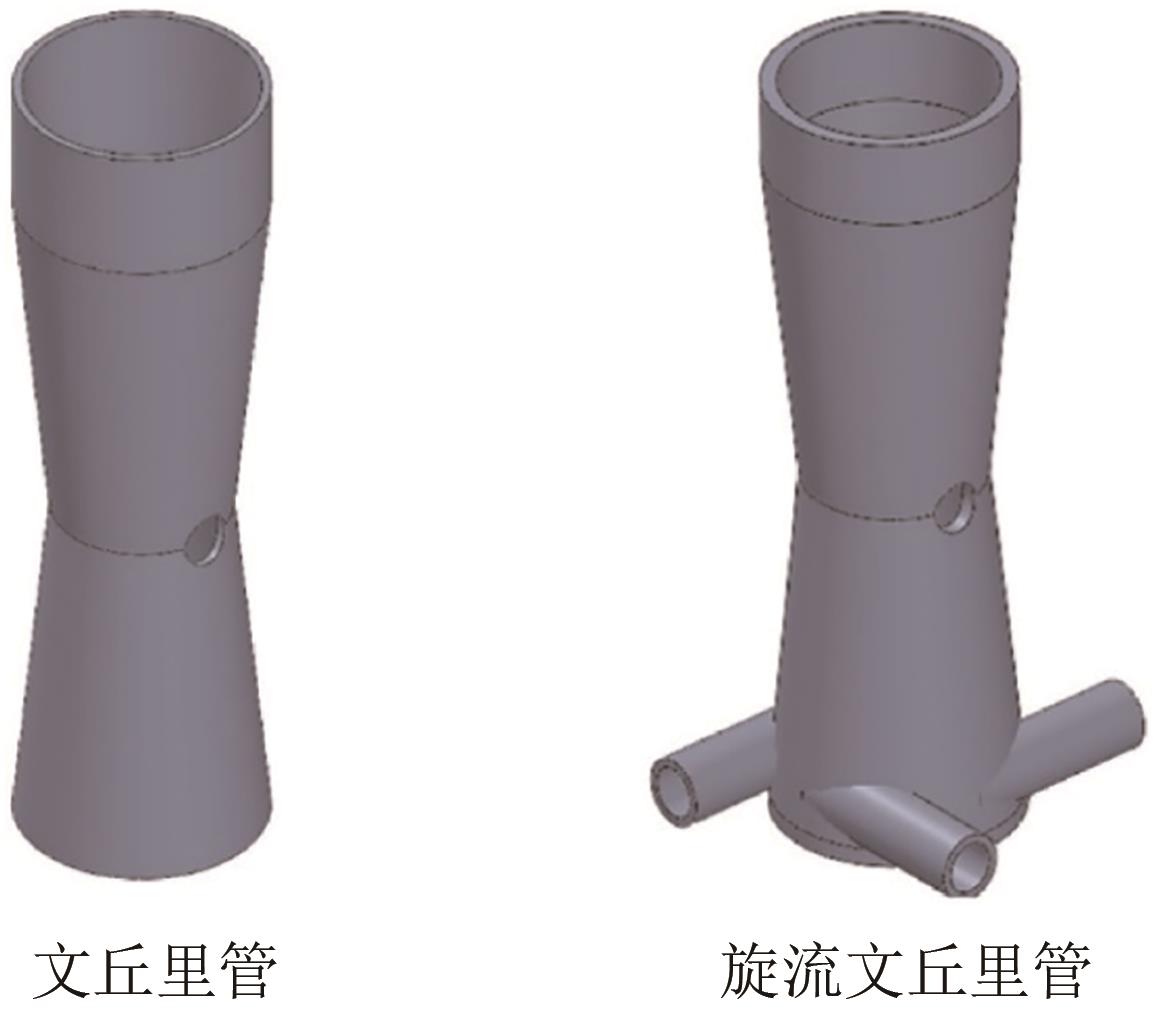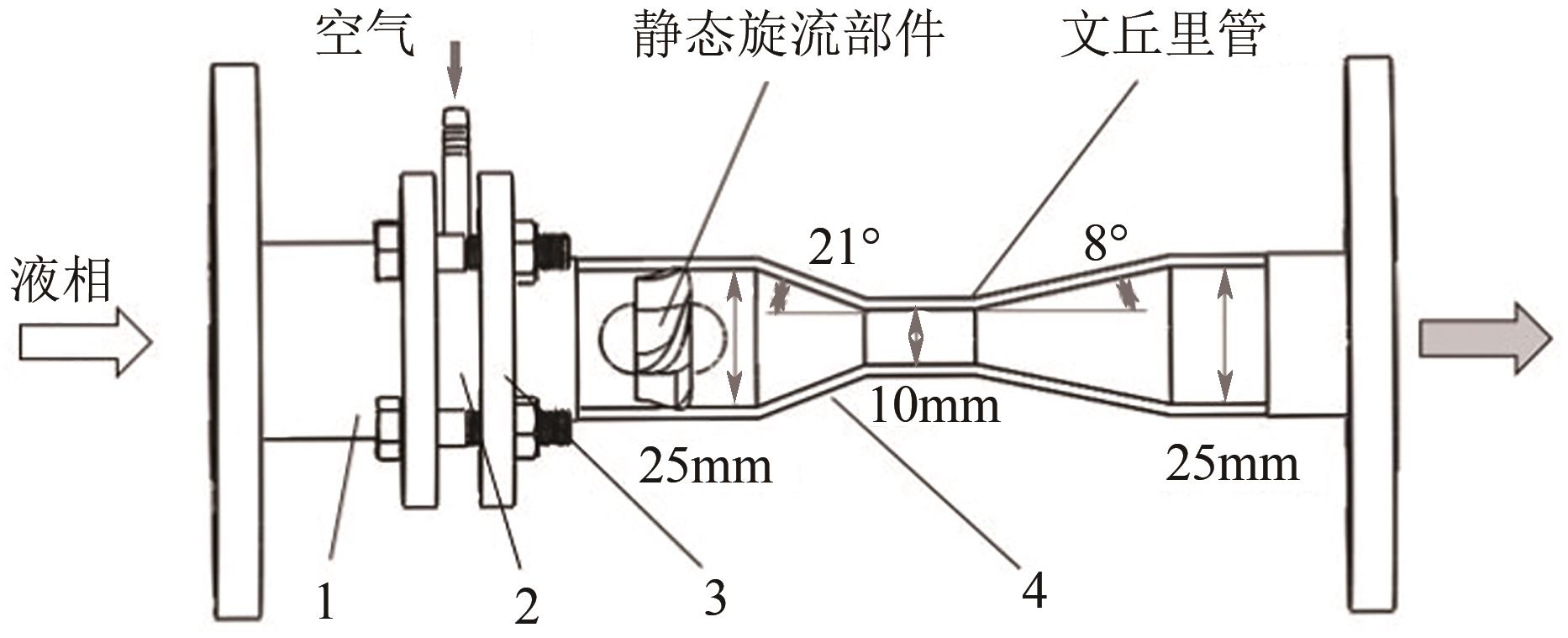Chemical Industry and Engineering Progress ›› 2024, Vol. 43 ›› Issue (1): 111-123.DOI: 10.16085/j.issn.1000-6613.2023-1171
• Column: Chemical process intensification • Previous Articles
Research and application process of microbubble generator
ZHAI Linxiao( ), CUI Yizhou, LI Chengxiang, SHI Xiaogang(
), CUI Yizhou, LI Chengxiang, SHI Xiaogang( ), GAO Jinsen, LAN Xingying
), GAO Jinsen, LAN Xingying
- State Key Laboratory of Heavy Oil Processing, China University of Petroleum, Beijing 102249, China
-
Received:2023-07-11Revised:2023-09-11Online:2024-02-05Published:2024-01-20 -
Contact:SHI Xiaogang
微气泡发生器的研究与应用进展
翟霖晓( ), 崔怡洲, 李成祥, 石孝刚(
), 崔怡洲, 李成祥, 石孝刚( ), 高金森, 蓝兴英
), 高金森, 蓝兴英
- 中国石油大学(北京)重质油全国重点实验室,北京 102249
-
通讯作者:石孝刚 -
作者简介:翟霖晓(1999—),男,硕士研究生,研究方向为油气加工工艺与工程。E-mail:zhailinxiao317@163.com。 -
基金资助:国家自然科学基金重点项目(U22B20149);国家自然科学基金创新研究群体项目(22021004)
CLC Number:
Cite this article
ZHAI Linxiao, CUI Yizhou, LI Chengxiang, SHI Xiaogang, GAO Jinsen, LAN Xingying. Research and application process of microbubble generator[J]. Chemical Industry and Engineering Progress, 2024, 43(1): 111-123.
翟霖晓, 崔怡洲, 李成祥, 石孝刚, 高金森, 蓝兴英. 微气泡发生器的研究与应用进展[J]. 化工进展, 2024, 43(1): 111-123.
share this article
Add to citation manager EndNote|Ris|BibTeX
URL: https://hgjz.cip.com.cn/EN/10.16085/j.issn.1000-6613.2023-1171
| 主要应用领域 | 微气泡发生器类型 | 气泡尺寸/μm | 气含率/% |
|---|---|---|---|
| 水处理过程 | 溶气-释气式[ | 0~50 | — |
| 微孔曝气式[ | 10~50 | 0~30 | |
| 电解式[ | 约100 | — | |
| 耦合生物反应器 | 搅拌式[ | 20~1000 | — |
| 喷射器阵列式[ | 230~600 | 35~55 | |
| 矿物浮选过程 | 射流式[ | — | 0~30 |
| 微孔曝气式[ | 0~1000 | 0~30 | |
| 化工过程 | 文丘里管式[ | 50~800 | 0~1 |
| 超声/声压式[ | — | — | |
| 微孔曝气式[ | 30~100 | 约15 |
| 主要应用领域 | 微气泡发生器类型 | 气泡尺寸/μm | 气含率/% |
|---|---|---|---|
| 水处理过程 | 溶气-释气式[ | 0~50 | — |
| 微孔曝气式[ | 10~50 | 0~30 | |
| 电解式[ | 约100 | — | |
| 耦合生物反应器 | 搅拌式[ | 20~1000 | — |
| 喷射器阵列式[ | 230~600 | 35~55 | |
| 矿物浮选过程 | 射流式[ | — | 0~30 |
| 微孔曝气式[ | 0~1000 | 0~30 | |
| 化工过程 | 文丘里管式[ | 50~800 | 0~1 |
| 超声/声压式[ | — | — | |
| 微孔曝气式[ | 30~100 | 约15 |
| 参考文献 | 气液比 | 气泡平均尺寸 /µm | 气含率 /% | 比表面积 /m-1 | kLa/s-1 |
|---|---|---|---|---|---|
| Muroyama等[ | 0.01~0.07 | 32~50 | 0.6~0.8 | 1000 | 0.028 |
| Muroyama等[ | 0.01~0.07 | 30~60 | 1~1.75 | 1500~2500 | 0.015 |
| Ansari等[ | 0.021 | 250 | 10 | — | 0.83 |
| Turney等[ | 0.026~0.26 | 230~600 | 35~55 | 5500~9200 | 0.8 |
| 参考文献 | 气液比 | 气泡平均尺寸 /µm | 气含率 /% | 比表面积 /m-1 | kLa/s-1 |
|---|---|---|---|---|---|
| Muroyama等[ | 0.01~0.07 | 32~50 | 0.6~0.8 | 1000 | 0.028 |
| Muroyama等[ | 0.01~0.07 | 30~60 | 1~1.75 | 1500~2500 | 0.015 |
| Ansari等[ | 0.021 | 250 | 10 | — | 0.83 |
| Turney等[ | 0.026~0.26 | 230~600 | 35~55 | 5500~9200 | 0.8 |
| 1 | Fine bubble technology—General principles for usage and measurement of fine bubbles—Part 1: Terminology: [S]. International Organization for Standardization, 2017. |
| 2 | SEBBA F. Microfoams—An unexploited colloid system[J]. Journal of Colloid and Interface Science, 1971, 35(4): 643-646. |
| 3 | ZABEL T. The advantages of dissolved-air flotation for water treatment[J]. Journal: American Water Works Association, 1985, 77(5): 42-46. |
| 4 | KASTER J A, MICHELSEN D L, VELANDER W H. Increased oxygen transfer in a yeast fermentation using a microbubble dispersion[J]. Applied Biochemistry and Biotechnology, 1990, 24(1): 469-484. |
| 5 | 谢广元, 欧泽深, 高敏, 等. FCMC-1500型旋流微泡浮选柱在煤泥浮选中的应用研究[J]. 煤炭科学技术, 1997, 25(11): 26-28. |
| XIE Guangyuan, Zeshen OU, GAO Min, et al. Application of FCMC-1500 cyclone micro-bubble flotation column in coal slime flotation[J]. Coal Science and Technology, 1997, 25(11): 26-28. | |
| 6 | KARAMAH E F, BISMO S, ANNASARI L, et al. Mass transfer study on micro-bubbles ozonation in a bubble column[J]. 2010, 2: 243-252. |
| 7 | 张志炳. 微界面传质强化技术[M]. 北京: 化学工业出版社, 2020. |
| ZHANG Zhibing. Microinterfacial mass transfer intensification[M]. Beijing: Chemical Industry Press, 2020. | |
| 8 | ABADIE T, MA AWALI S M AL, BRENNAN B, et al. Oxygen transfer of microbubble clouds in aqueous solutions—Application to wastewater[J]. Chemical Engineering Science, 2022, 257: 117693. |
| 9 | RAJAPAKSE N, ZARGAR M, SEN T, et al. Effects of influent physicochemical characteristics on air dissolution, bubble size and rise velocity in dissolved air flotation: A review[J]. Separation and Purification Technology, 2022, 289: 120772. |
| 10 | AMBIKA RAJENDRAN M. Ultrasound-guided microbubble in the treatment of cancer: A mini narrative review[J]. Cureus, 2018: e3256-e3256. |
| 11 | CHENG Jun, XU Junchen, YE Qing, et al. Strengthening mass transfer of carbon dioxide microbubbles dissolver in a horizontal tubular photo-bioreactor for improving microalgae growth[J]. Bioresource Technology, 2019, 277: 11-17. |
| 12 | YIN Junlian, LI Jingjing, LI Hua, et al. Experimental study on the bubble generation characteristics for an Venturi type bubble generator[J]. International Journal of Heat and Mass Transfer, 2015, 91: 218-224. |
| 13 | ALAM H S, REDHYKA G G, BAHRUDIN, et al. Design and performance of swirl flow microbubble generator[J]. Chemical Engineering & Technology, 2018, 7(40): 66-69. |
| 14 | MAEDA Y, TAYA C, HOSOKAWA S, et al. Influence of dissolved gas concentration on diameter and number density of micro-bubbles[C]// Proceedings of ASME-JSME-KSME 2011 Joint Fluids Engineering Conference, 2012: 2579-2585. |
| 15 | TURNEY D E, ANSARI M, KALAGA D V, et al. A micro-jet array for economic intensification of gas transfer in bioreactors[J]. Biotechnology Progress, 2019, 35(1): e2710. |
| 16 | 徐一丹, 庞明军, 费腾, 等. 电解法产生微气泡的实验研究[J]. 实验室科学, 2015, 18(6): 17-21. |
| XU Yidan, PANG Mingjun, FEI Teng, et al. Experimental study on microbubbles generated by electrolytic process[J]. Laboratory Science, 2015, 18(6): 17-21. | |
| 17 | MAKUTA T, SUZUKI R, NAKAO T. Generation of microbubbles from hollow cylindrical ultrasonic horn[J]. Ultrasonics, 2013, 53(1): 196-202. |
| 18 | XIE B Q, ZHOU C J, SANG L, et al. Preparation and characterization of microbubbles with a porous ceramic membrane[J]. Chemical Engineering and Processing: Process Intensification, 2021, 159: 108213. |
| 19 | KUKIZAKI M, GOTO M. Spontaneous formation behavior of uniform-sized microbubbles from Shirasu porous glass (SPG) membranes in the absence of water-phase flow[J]. Colloids and Surfaces A: Physicochemical and Engineering Aspects, 2007, 296(1/2/3): 174-181. |
| 20 | WANG Xinyan, SHUAI Yun, ZHANG Haomiao, et al. Bubble breakup in a swirl-Venturi microbubble generator[J]. Chemical Engineering Journal, 2021, 403: 126397. |
| 21 | 杜明辉, 王勇, 高群丽, 等. 臭氧微气泡处理有机废水的效果与机制[J]. 化工进展, 2021, 40(12): 6907-6915. |
| DU Minghui, WANG Yong, GAO Qunli, et al. Mechanism and efficiency of ozone microbubble treatment of organic wastewater[J]. Chemical Industry and Engineering Progress, 2021, 40(12): 6907-6915. | |
| 22 | ZHANG Wenhui, ZHANG Jinzhao, ZHAO Bo, et al. Microbubble size distribution measurement in a DAF system[J]. Industrial & Engineering Chemistry Research, 2015, 54(18): 5179-5183. |
| 23 | 高会萌. 基于微气泡曝气的生物膜反应器废水处理技术[J]. 科学技术创新, 2022(15): 54-57. |
| GAO Huimeng. Biofilm reactor wastewater treatment technology based on microbubble aeration[J]. Scientific and Technological Innovation, 2022(15): 54-57. | |
| 24 | 曹伟丽, 王彦龙, 郭明, 等. 采油污水的电气浮处理技术研究[J]. 应用化工, 2014, 43(8): 1547-1548, 1552. |
| CAO Weili, WANG Yanlong, GUO Ming, et al. Study of electro-floatation of oilfield wastewater[J]. Applied Chemical Industry, 2014, 43(8): 1547-1548, 1552. | |
| 25 | ZHANG Wei, LI Zhengjian, AGBLEVOR F A. Microbubble fermentation of recombinant Pichia pastoris for human serum albumin production[J]. Process Biochemistry, 2005, 40(6): 2073-2078. |
| 26 | 郝晓君. 华阳二矿选煤厂射流浮选柱分选试验研究[J]. 西部探矿工程, 2023, 35(2): 91-93. |
| HAO Xiaojun. Experimental study on separation of jet flotation column in Huayang No. 2 coal mine[J]. West-China Exploration Engineering, 2023, 35(2): 91-93. | |
| 27 | 程雄伟, 王怀法. 新型射流浮选柱充气性能试验研究[J]. 矿产综合利用, 2019(4): 38-41. |
| CHENG Xiongwei, WANG Huaifa. Experimental study on the aeration performance of a new type of jet flotation column[J]. Multipurpose Utilization of Mineral Resources, 2019(4): 38-41. | |
| 28 | TAO Xihuan, LIU Yefei, JIANG Hong, et al. Microbubble generation with shear flow on large-area membrane for fine particle flotation[J]. Chemical Engineering and Processing: Process Intensification, 2019, 145: 107671. |
| 29 | GORDIYCHUK A, SVANERA M, BENINI S, et al. Size distribution and Sauter mean diameter of micro bubbles for a Venturi type bubble generator[J]. Experimental Thermal and Fluid Science, 2016, 70: 51-60. |
| 30 | JANAJREH I, ELSAMAD T, NOORUL HUSSAIN M. Intensification of transesterification via sonication numerical simulation and sensitivity study[J]. Applied Energy, 2017, 185: 2151-2159. |
| 31 | 周士磊, 郑权, 王岚, 等. 微气泡分散对间甲基苯甲酸合成过程的强化作用[J]. 现代化工, 2023, 43(7): 199-201. |
| ZHOU Shilei, ZHENG Quan, WANG Lan, et al. Strengthening effect of dispersive air microbubbles on synthesis process of m-toluic acid[J]. Modern Chemical Industry, 2023, 43(7): 199-201. | |
| 32 | KIM Y-B, LEE H-S, FRANCIS L, et al. Innovative swirling flow-type microbubble generator for multi-stage DCMD desalination system: Focus on the two-phase flow pattern, bubble size distribution, and its effect on MD performance[J]. Journal of Membrane Science, 2019, 588: 117197. |
| 33 | KIM Hyun-Sik, Ji-Young LIM, PARK Soo-Young, et al. Effects on swirling chamber and breaker disk in pressurized-dissolution type micro-bubble generator[J]. KSCE Journal of Civil Engineering, 2017, 21(4): 1102-1106. |
| 34 | YAMASHITA H, AOYAGI H, MINAGAWA H. Enhancement of microbubble generation in a pressurized dissolution process by packing the nozzle with porous ceramics[J]. Water Science and Technology, 2012, 65(1): 69-75. |
| 35 | 李军令. 旋流溶气气浮技术在电脱盐含盐污水处理中的应用[J]. 炼油技术与工程, 2022, 52(3): 15-20. |
| LI Junling. Application of cyclone dissolved air floatation technology in the treatment of electric desalting salt-containing waste water[J]. Petroleum Refinery Engineering, 2022, 52(3): 15-20. | |
| 36 | MELICH R, J-P VALOUR, URBANIAK S, et al. Preparation and characterization of perfluorocarbon microbubbles using Shirasu porous Glass (SPG) membranes[J]. Colloids and Surfaces A: Physicochemical and Engineering Aspects, 2019, 560: 233-243. |
| 37 | KUKIZAKI M. Microbubble formation using asymmetric Shirasu porous glass (SPG) membranes and porous ceramic membranes—A comparative study[J]. Colloids and Surfaces A: Physicochemical and Engineering Aspects, 2009, 340(1/2/3): 20-32. |
| 38 | KUKIZAKI M, BABA Y. Effect of surfactant type on microbubble formation behavior using Shirasu porous glass (SPG) membranes[J]. Colloids and Surfaces A: Physicochemical and Engineering Aspects, 2008, 326(3): 129-137. |
| 39 | ZIMMERMAN W B J, TESAR V. Bubble generation for aeration and other purposes: US12447629[P]. 2012-10-16. |
| 40 | TESAŘ V. High-frequency fluidic oscillator[J]. Sensors and Actuators A: Physical, 2015, 234: 158-167. |
| 41 | LIU Chun, TANAKA H, MA Jin, et al. Effect of microbubble and its generation process on mixed liquor properties of activated sludge using Shirasu porous glass (SPG) membrane system[J]. Water Research, 2012, 46(18): 6051-6058. |
| 42 | ZHANG Lei, LIU Junliang, LIU Chun, et al. Performance of a fixed-bed biofilm reactor with microbubble aeration in aerobic wastewater treatment[J]. Water Science and Technology, 2016, 74(1): 138-146. |
| 43 | CHANDRAN P, BAKSHI S, CHATTERJEE D. Study on the characteristics of hydrogen bubble formation and its transport during electrolysis of water[J]. Chemical Engineering Science, 2015, 138: 99-109. |
| 44 | SAKAI O, KIMURA M, SHIRAFUJI T, et al. Underwater microdischarge in arranged microbubbles produced by electrolysis in electrolyte solution using fabric-type electrode[J]. Applied Physics Letters, 2008, 93(23): 231501-231503. |
| 45 | COEY J M D, MÖBIUS M, GILLEN A J, et al. Generation and stability of freestanding aqueous microbubbles[J]. Electrochemistry Communications, 2017, 76: 38-41. |
| 46 | TANAKA Y, KIKUCHI K, SAIHARA Y, et al. Bubble visualization and electrolyte dependency of dissolving hydrogen in electrolyzed water using solid-polymer-electrolyte[J]. Electrochimica Acta, 2005, 50(25/26): 5229-5236. |
| 47 | YU Cunming, CAO Moyuan, DONG Zhichao, et al. Aerophilic electrode with cone shape for continuous generation and efficient collection of H2 bubbles[J]. Advanced Functional Materials, 2016, 26(37): 6830-6835. |
| 48 | LI Hengzhen, HU Liming, XIA Zhiran. Impact of groundwater salinity on bioremediation enhanced by micro-nano bubbles[J]. Materials, 2013, 6(9): 3676-3687. |
| 49 | XU Xiao, GE Xiaoling, QIAN Yundong, et al. Effect of nozzle diameter on bubble generation with gas self-suction through swirling flow[J]. Chemical Engineering Research and Design, 2018, 138: 13-20. |
| 50 | 宋艳梅. 膜片式微孔曝气器强化能质传递促进微藻固定CO2研究[D]. 杭州: 浙江大学, 2022. |
| SONG Yanmei. Strengthening energy and mass transfer with diaphragm microporous aerators to promote CO2 fixation by microalgae[D]. Hangzhou: Zhejiang University, 2022. | |
| 51 | ZIMMERMAN W B, ZANDI M, HEMAKA BANDULASENA H C, et al. Design of an airlift loop bioreactor and pilot scales studies with fluidic oscillator induced microbubbles for growth of a microalgae Dunaliella salina [J]. Applied Energy, 2011, 88(10): 3357-3369. |
| 52 | SOYSAL U, AZEVEDO P N, BUREAU F, et al. Freeze-dried microfluidic monodisperse microbubbles as a new generation of ultrasound contrast agents[J]. Ultrasound in Medicine & Biology, 2022, 48(8): 1484-1495. |
| 53 | H-A JENG. Synthesis of multifunctional microbubbles through precursor microfluidic droplet generation[M]. Michigan: ProQuest LLC, 2019. |
| 54 | KHAN A H, JIANG Xinyue, SURWASE S, et al. Effectiveness of oil-layered albumin microbubbles produced using microfluidic T-junctions in series for in vitro inhibition of tumor cells[J]. Langmuir, 2020, 36(39): 11429-11441. |
| 55 | SALARI A, GNYAWALI V, GRIFFITHS I M, et al. Shrinking microbubbles with microfluidics: Mathematical modelling to control microbubble sizes[J]. Soft Matter, 2017, 13(46): 8796-8806. |
| 56 | LIN Hangyu, CHEN Junfang, CHEN Chuanpin. A novel technology: Microfluidic devices for microbubble ultrasound contrast agent generation[J]. Medical & Biological Engineering & Computing, 2016, 54(9): 1317-1330. |
| 57 | WEBER J, AGBLEVOR F A. Microbubble fermentation of Trichoderma reesei for cellulase production[J]. Process Biochemistry, 2005, 40(2): 669-676. |
| 58 | REHMAN F, MEDLEY G J D, BANDULASENA H, et al. Fluidic oscillator-mediated microbubble generation to provide cost effective mass transfer and mixing efficiency to the wastewater treatment plants[J]. Environmental Research, 2015, 137: 32-39. |
| 59 | HANOTU J, KONG D X, ZIMMERMAN W B. Intensification of yeast production with microbubbles[J]. Food and Bioproducts Processing, 2016, 100: 424-431. |
| 60 | MUTHARASU L C, KALAGA D V, SATHE M, et al. Experimental study and CFD simulation of the multiphase flow conditions encountered in a novel down-flow bubble column[J]. Chemical Engineering Journal, 2018, 350: 507-522. |
| 61 | HERNANDEZ-ALVARADO F, KALAGA D V, TURNEY D, et al. Void fraction, bubble size and interfacial area measurements in co-current downflow bubble column reactor with microbubble dispersion[J]. Chemical Engineering Science, 2017, 168: 403-413. |
| 62 | FU Taotao, MA Youguang. Bubble formation and breakup dynamics in microfluidic devices: A review[J]. Chemical Engineering Science, 2015, 135: 343-372. |
| 63 | VAN HOEVE W, DOLLET B, GORDILLO J M, et al. Bubble size prediction in co-flowing streams[J]. EPL (Europhysics Letters), 2011, 94(6): 64001. |
| 64 | WANG Shiying, DHANALIWALA A H, HOSSACK J A. Modeling microbubble production rates from expanding nozzle flow-focusing microfluidic devices[C]// 2012 IEEE International Ultrasonics Symposium. IEEE, 2013: 667-670. |
| 65 | JIANG Chunxiang, LI Xiang, YAN Fei, et al. Microfluidic-assisted formation of multifunctional monodisperse microbubbles for diagnostics and therapeutics[J]. Micro & Nano Letters, 2011, 6(6): 417. |
| 66 | KOTHANDARAMAN A, HARKER A, VENTIKOS Y, et al. Novel preparation of monodisperse microbubbles by integrating oscillating electric fields with microfluidics[J]. Micromachines, 2018, 9(10): 497. |
| 67 | KOTHANDARAMAN A, ALFADHL Y, QURESHI M, et al. Effect of the mixing region geometry and collector distance on microbubble formation in a microfluidic device coupled with AC-DC electric fields[J]. Langmuir, 2019, 35(31): 10052-10060. |
| 68 | ZHAN Wei, LIU Ziwei, JIANG Shaokun, et al. Comparison of formation of bubbles and droplets in step-emulsification microfluidic devices[J]. Journal of Industrial and Engineering Chemistry, 2022, 106: 469-481. |
| 69 | LI Xiaoheng, SU Wenbing, LIU Yu, et al. Comparison of bubble velocity, size, and holdup distribution between single-and double-air inlet in jet microbubble generator[J]. Asia-Pacific Journal of Chemical Engineering, 2021, 16(2): e2611. |
| 70 | TIAN H, PI S, FENG Y, et al. One-dimensional drift-flux model of gas holdup in fine-bubble jet reactor[J]. Chemical Engineering Journal, 2020, 386: 121222. |
| 71 | 惠恒雷, 仇性启, 张建伟, 等. 射流气泡发生器喉嘴距优化试验研究[J]. 节能, 2011, 30(4): 28-32, 2. |
| HUI Henglei, QIU Xingqi, ZHANG Jianwei, et al. Experimental research into optimization on the distance between pipe and nozzle of the jet bubble generator[J]. Energy Conservation, 2011, 30(4): 28-32, 2. | |
| 72 | SU Wenbing, YAN Xiaokang, WANG Lijun, et al. Effect of height of flotation column on flow field[J]. Asia-Pacific Journal of Chemical Engineering, 2019, 14(3): e2311. |
| 73 | 艾光华, 刘炯天, 曹亦俊, 等. 旋流-静态微泡浮选柱强化回收微细粒黑钨矿[J]. 中南大学学报(自然科学版), 2015, 46(11): 3983-3990. |
| AI Guanghua, LIU Jiongtian, CAO Yijun, et al. Strengthened recovery of fine wolframite by cyclonic-static microbubble flotation column[J]. Journal of Central South University (Science and Technology), 2015, 46(11): 3983-3990. | |
| 74 | 秦华江, 张海军, 何川, 等. 旋流-静态微泡浮选柱回收钼精选尾矿中钼金属[J]. 中国钼业, 2016, 40(4): 6-9. |
| QIN Huajiang, ZHANG Haijun, HE Chuan, et al. Study on the recovery of molybdenum in molybdenum cleaner tailings using cyclonic-static microbubble flotation column[J]. China Molybdenum Industry, 2016, 40(4): 6-9. | |
| 75 | 鲁志强, 杨丽, 张晨, 等. 微气泡技术在鼓泡塔中的实验研究[J]. 石油化工, 2018, 47(7): 676-680. |
| LU Zhiqiang, YANG Li, ZHANG Chen, et al. Experimental study of microbubble technology in bubble column[J]. Petrochemical Technology, 2018, 47(7): 676-680. | |
| 76 | 田洪舟, 杨高东, 杨国强, 等. 微界面强化重油浆态床低压加氢的传质基础[J]. 化工学报, 2020, 71(11): 4927-4935. |
| TIAN Hongzhou, YANG Gaodong, YANG Guoqiang, et al. Mass transfer basis of low-pressure hydrogenation for heavy oil in microinterface-intensified slurry-bed reactor[J]. CIESC Journal, 2020, 71(11): 4927-4935. | |
| 77 | 吴梦思, 田洪舟, 丁方园, 等. 微界面强化柴油加氢脱硫过程的模拟计算研究[J]. 南京大学学报(自然科学), 2022, 58(4): 706-712. |
| WU Mengsi, TIAN Hongzhou, DING Fangyuan, et al. Simulation study on micro-interface intensified diesel hydrodesulfurization process[J]. Journal of Nanjing University (Natural Science), 2022, 58(4): 706-712. | |
| 78 | 张志炳, 田洪舟, 曹宇, 等. PX生产PTA的内置微界面机组强化反应系统及工艺: CN111389314A[P]. 2020-03-31. |
| ZHANG Zhibing, TIAN Hongzhou, CAO Yu, et al. Enhanced reaction system and process with built-in micro-interface unit for PTA production from PX: CN111389314A[P]. 2020-03-31. | |
| 79 | 张志炳, 周政, 张锋, 等. 一种苯选择性加氢反应系统及方法: CN111569815B[P]. 2020-05-14. |
| ZHANG Zhibing, ZHOU Zheng, ZHANG Feng, et al. Abenzene selective hydrogenation reaction system and method: CN111569815B[P]. 2020-05-14. | |
| 80 | 张志炳, 周政, 张锋, 等. 一种柴油加氢的反应系统及方法: CN111871339A[P]. 2020-07-16. |
| ZHANG Zhibing, ZHOU Zheng, ZHANG Feng, et al. A reaction system and method for hydrogenation of diesel fuel: CN111871339A[P]. 2020-07-16. | |
| 81 | 张晓国, 谢清峰, 李思, 等. 喷气燃料FITS加氢技术的工业应用[J]. 炼油技术与工程, 2017, 47(9): 21-24. |
| ZHANG Xiaoguo, XIE Qingfeng, LI Si, et al. Commercial application of FITS hydrotreating technology for jet fuel[J]. Petroleum Refinery Engineering, 2017, 47(9): 21-24. | |
| 82 | 谢清峰, 夏登刚, 姚峰, 等. 重整生成油全馏分FITS加氢脱烯烃技术的应用[J]. 炼油技术与工程, 2016, 46(1): 7-12. |
| XIE Qingfeng, XIA Denggang, YAO Feng, et al. Application of FITS hydrogenation process for olefin removal of full fraction of reformate[J]. Petroleum Refinery Engineering, 2016, 46(1): 7-12. | |
| 83 | LI Jingjing, SONG Yuchen, YIN Junlian, et al. Investigation on the effect of geometrical parameters on the performance of a Venturi type bubble generator[J]. Nuclear Engineering and Design, 2017, 325: 90-96. |
| 84 | FENG Yirong, MU Hongfeng, LIU Xi, et al. Leveraging 3D printing for the design of high-performance Venturi microbubble generators[J]. Industrial & Engineering Chemistry Research, 2020, 59(17): 8447-8455. |
| 85 | 曹俊雅, 马梦杰, 李平平, 等. 进气方向对文丘里微气泡发生器气泡直径的影响[J]. 黄金科学技术, 2017, 25(5): 127-134. |
| CAO Junya, MA Mengjie, LI Pingping, et al. Effect of bubble intake direction on bubble diameters generated by a Venturi microbubble generator[J]. Gold Science and Technology, 2017, 25(5): 127-134. | |
| 86 | 丁国栋, 陈家庆, 李振林, 等. 注气孔位置对文丘里管式微气泡发生器成泡特性的影响分析[J]. 化工学报, 2021, 72(11): 5552-5562. |
| DING Guodong, CHEN Jiaqing, LI Zhenlin, et al. Analysis of the effect of air injection hole position on bubble formation characteristics of Venturi-type microbubble generator[J]. CIESC Journal, 2021, 72(11): 5552-5562. | |
| 87 | 颜攀, 黄正梁, 王靖岱, 等. 文丘里气泡发生器的气泡尺寸及分布[J]. 浙江大学学报(工学版), 2017, 51(10): 2070-2076. |
| YAN Pan, HUANG Zhengliang, WANG Jingdai, et al. Bubble size and its distribution for Venturi bubble generator[J]. Journal of Zhejiang University (Engineering Science), 2017, 51(10): 2070-2076. | |
| 88 | SADATOMI M, KAWAHARA A, KANO K, et al. Performance of a new micro-bubble generator with a spherical body in a flowing water tube[J]. Experimental Thermal and Fluid Science, 2005, 29(5): 615-623. |
| 89 | JUWANA W E, WIDYATAMA A, DINARYANTO O, et al. Hydrodynamic characteristics of the microbubble dissolution in liquid using orifice type microbubble generator[J]. Chemical Engineering Research and Design, 2019, 141: 436-448. |
| 90 | 陈强, 蔡连波, 李小婷, 等. 用于强化鼓泡床加氢反应器气液传质的装置: CN105038845B[P]. 2017-08-29. |
| CHEN Qiang, CAI Lianbo, LI Xiaoting, et al. Device for enhanced gas-liquid mass transfer in a bubbling bed hydrogenation reactor: CN105038845B[P]. 2017-08-29. | |
| 91 | 王喜彬, 方向晨, 孙万付, 等. 一种悬浮床加氢技术的强化传质方法: CN102051207A[P]. 2011-05-11. |
| WANG Xibin, FANG Xiangchen, SUN Wanfu, et al. An enhanced mass transfer method for suspended bed hydrogenation technology: CN102051207A[P]. 2011-05-11. | |
| 92 | 李方. 一种原料油悬浮床加氢装置: CN203451487U[P]. 2014-02-26. |
| LI Fang. A kind of feedstock oil suspended bed hydrogenation device: CN203451487U[P]. 2014-02-26. | |
| 93 | MAKUTA T, TAKEMURA F, HIHARA E, et al. Generation of micro gas bubbles of uniform diameter in an ultrasonic field[J]. Journal of Fluid Mechanics, 2006, 548: 113. |
| 94 | MUROYAMA K, IMAI K, OKA Y, et al. Mass transfer properties in a bubble column associated with micro-bubble dispersions[J]. Chemical Engineering Science, 2013, 100: 464-473. |
| 95 | MUROYAMA K, OKA Y, FUJIKI R. Transport properties of micro-bubbles in a bubble column[J]. Journal of Chemical Engineering of Japan, 2012, 45(9): 666-671. |
| 96 | ANSARI M, TURNEY D E, YAKOBOV R, et al. Chemical hydrodynamics of a downward microbubble flow for intensification of gas-fed bioreactors[J]. AIChE Journal, 2018, 64(4): 1399-1411. |
| 97 | SWART B, ZHAO Yubin, KHAKU M, et al. In situ characterisation of size distribution and rise velocity of microbubbles by high-speed photography[J]. Chemical Engineering Science, 2020, 225: 115836. |
| 98 | CARUGO D, BROWNING R J, IRANMANESH I, et al. Scaleable production of microbubbles using an ultrasound-modulated microfluidic device[J]. The Journal of the Acoustical Society of America, 2021, 150(2): 1577-1589. |
| 99 | WANG Xinyan, SHUAI Yun, ZHOU Xiaorui, et al. Performance comparison of swirl-Venturi bubble generator and conventional Venturi bubble generator[J]. Chemical Engineering and Processing: Process Intensification, 2020, 154: 108022. |
| 100 | 丁国栋, 陈家庆, 王春升, 等. 轴向旋流式微气泡发生器的结构设计与数值模拟[J]. 过程工程学报, 2018, 18(5): 934-941. |
| DING Guodong, CHEN Jiaqing, WANG Chunsheng, et al. Structural design and numerical simulation of axial-swirling type micro-bubble generator[J]. The Chinese Journal of Process Engineering, 2018, 18(5): 934-941. |
| [1] | SU Mengjun, LIU Jian, XIN Jing, CHEN Yufei, ZHANG Haihong, HAN Longnian, ZHU Yuanbao, LI Hongbao. Progress in the application of gas-liquid mixing intensification in fixed-bed hydrogenation [J]. Chemical Industry and Engineering Progress, 2024, 43(1): 100-110. |
| [2] | YANG Hanyue, KONG Lingzhen, CHEN Jiaqing, SUN Huan, SONG Jiakai, WANG Sicheng, KONG Biao. Decarbonization performance of downflow tubular gas-liquid contactor of microbubble-type [J]. Chemical Industry and Engineering Progress, 2023, 42(S1): 197-204. |
| [3] | SHENG Weiwu, CHENG Yongpan, CHEN Qiang, LI Xiaoting, WEI Jia, LI Linge, CHEN Xianfeng. Operating condition analysis of the microbubble and microdroplet dual-enhanced desulfurization reactor [J]. Chemical Industry and Engineering Progress, 2023, 42(S1): 142-147. |
| [4] | CHANG Yinlong, ZHOU Qimin, WANG Qingyue, WANG Wenjun, LI Bogeng, LIU Pingwei. Research progress in high value chemical recycling of waste polyolefins [J]. Chemical Industry and Engineering Progress, 2023, 42(8): 3965-3978. |
| [5] | WANG Zizong, LIU Gang, WANG Zhenwei. Progress and reflection on process intensification technology for ethylene/propylene production [J]. Chemical Industry and Engineering Progress, 2023, 42(4): 1669-1676. |
| [6] | XIAO Zhourong, LI Guozhu, WANG Li, ZHANG Xiangwen, GU Jianmin, WANG Desong. Research progress of the catalysts for hydrogen production via liquid hydrocarbon fuels steam reforming [J]. Chemical Industry and Engineering Progress, 2022, 41(S1): 97-107. |
| [7] | YAN Peng, CHENG Yi. Numerical simulation of membrane reactor of methane steam reforming for distributed hydrogen production [J]. Chemical Industry and Engineering Progress, 2022, 41(7): 3446-3454. |
| [8] | SHI Yici, PAN Yanqiu, WANG Chengyu, FAN Jiahe, YU Lu. Experimental investigations on Joule effect enhanced air gap membrane distillation for water desalination [J]. Chemical Industry and Engineering Progress, 2022, 41(5): 2285-2291. |
| [9] | SUN Xun, ZHAO Yue, XUAN Xiaoxu, ZHAO Shan, YOON Joon Yong, CHEN Songying. Advances in process intensification based on hydrodynamic cavitation [J]. Chemical Industry and Engineering Progress, 2022, 41(5): 2243-2255. |
| [10] | SONG Fei, WANG Junyan, HE Lin, SUI Hong, LI Xingang. Surfactant enhancement of bubbling for separation of residual solvent from oil sands residue after solvent extraction [J]. Chemical Industry and Engineering Progress, 2022, 41(4): 2007-2014. |
| [11] | WANG Yuhan, SHEN Chong, SU Yuanhai. Fundamentals and research progress of photochemical microreaction technology [J]. Chemical Industry and Engineering Progress, 2021, 40(9): 4749-4761. |
| [12] | WANG Xiaoda, CHEN Yu, WANG Qinglian, HUANG Zhixian, YANG Chen, WANG Hongxing, QIU Ting. Review on etherification by reactive distillation [J]. Chemical Industry and Engineering Progress, 2021, 40(4): 1797-1811. |
| [13] | DU Minghui, WANG Yong, GAO Qunli, ZHANG Yaozong, SUN Xiaoming. Mechanism and efficiency of ozone microbubble treatment of organic wastewater [J]. Chemical Industry and Engineering Progress, 2021, 40(12): 6907-6915. |
| [14] | QIAN Jiayi, XIAO Jianjun, SUN Lin, YANG Haiping, WANG Xianhua, CHEN Yingquan, CHEN Hanping. Research progress on process intensification in hydrolysis of biomass into 5-hydroxymethylfurfural in biphasic solvent systems [J]. Chemical Industry and Engineering Progress, 2021, 40(11): 6054-6060. |
| [15] | MA Lihui, HE Limin, MI Xiangran, CHEN Shujiong, LI Xiaowei. Research progress of gas-liquid two-phase flow splitting character at impacting T-junction [J]. Chemical Industry and Engineering Progress, 2021, 40(11): 5919-5928. |
| Viewed | ||||||
|
Full text |
|
|||||
|
Abstract |
|
|||||
